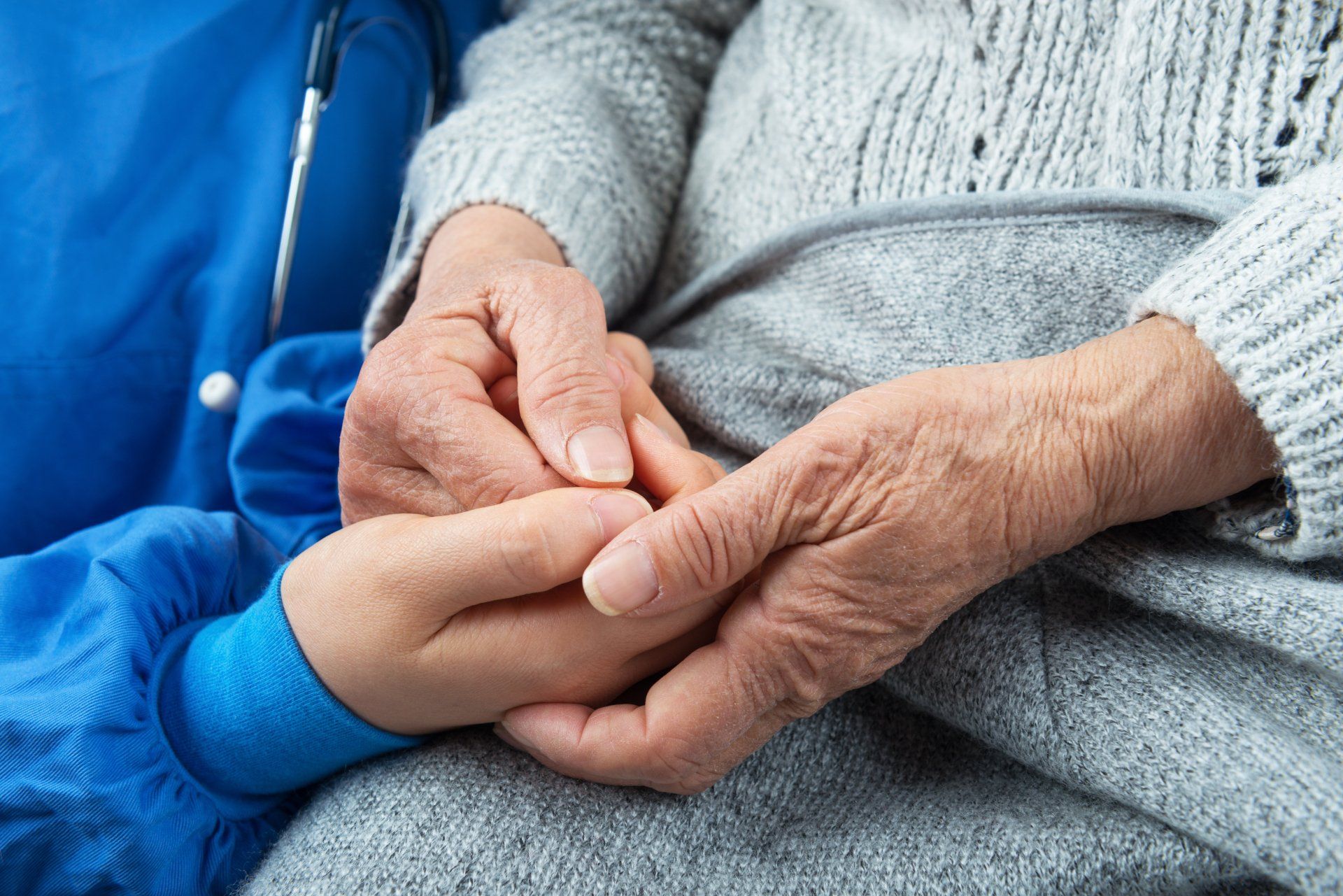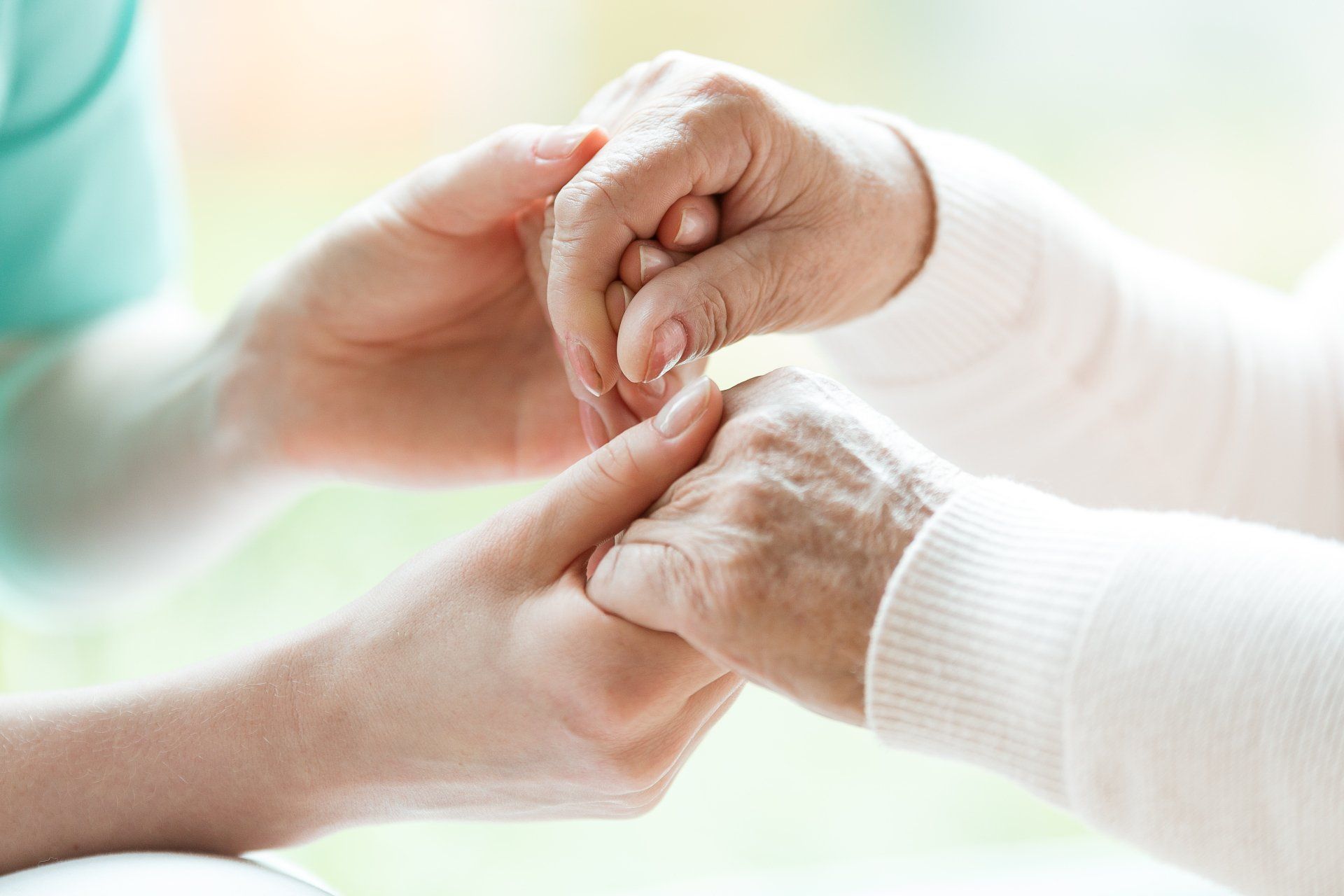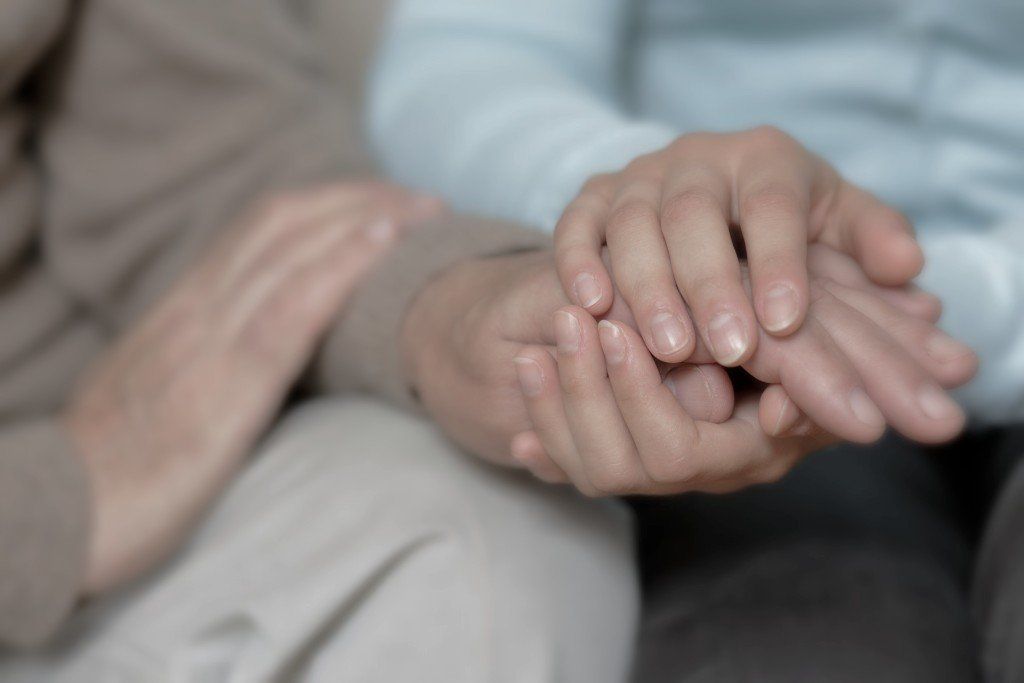GET IN TOUCH WITH OUR TEAM TODAY
Georgetown:
843-546-3410
Myrtle Beach:
843-839-3410
Toll-Free:
888-922-3410
Palliative Care: 843-839-3984
Blog Layout
There Are 4 Kinds of People in Caregiving
There Are 4 Kinds of People in Caregiving
Rosalynn Carter said, “There are only four kinds of people in this world: those who have been a caregiver, those who are currently caregivers, those who will be caregivers, and those who will need a caregiver.” Below are caregiving statistics from the Bureau of Labor Statistics, National Alliance for Caregiving and AARP (2015) and The State of Caregiving (2018):
- There are 40.4 million unpaid caregivers of adults ages 65 and older in the United States. Roughly half of these caregivers have been providing help for two years or less with more than a third providing care for five or more years.
- Adults ages 45 to 64 are the most likely to be caregivers. About a quarter of them (23%) are providing care for an aging adult.
- A significant number of adults ages 65 and over serve as caregivers for another aging adult. This age group, who themselves are advanced in age, is the second most likely age to be caregivers.
- According to caregivers, though rewarding, caregiving can be an emotional rollercoaster, overwhelming and stressful physically, emotionally, and financially.
At Tidelands Community Hospice, your community’s only locally based not-for-profit hospice, the two statements we hear most often from family members who have been caregivers are, “We could not have done this without you. We wished we had called you sooner.” Below is information to help you know why having Tidelands Community Hospice care benefits the patient and the family caregivers and the advantage of having it sooner rather than later.
- Tidelands Community Hospice care involves a team-oriented approach combining medical care, pain management, emotional, social and spiritual support tailored to the patient’s and family’s needs and desires with care provided where the patient lives, be it their home, a nursing home, or an assisted living facility.
- While hospice care provides hospital beds, medications, medical supplies and equipment, the interdisciplinary team of medical directors, nurses, home health aides, social workers, chaplains, volunteer and bereavement coordinators and volunteers work with caregivers to provide support, comfort and training in caring for their loved one.
- Tidelands Community Hospice care and services are available to all, regardless of their financial status or life situation. No one is ever turned away. Its care team is available 24 hours a day, seven days a week to provide care and support.
- Charity Care, through Tidelands Community Hospice’s Foundation, provides hospice care, medications, medical supplies and equipment to patients and families in need. Its Patient Partner program helps meet their daily necessities — food, clothing, rent, utilities — while the Special Programs help with needs such as providing transportation for a family member to come be the caregiver, finding additional care, to granting wishes.
- Tidelands Community Hospice’s care for the family/caregiver(s) does not end with the patient’s death. They continue to receive support through monthly letters and telephone calls up to one year after their loss. In addition, Monthly Support Groups are available to all in our community, not just hospice families, who are grieving the loss of a loved one.
It is our belief, at Tidelands Community Hospice and Foundation, that no one at the end of life should be without the smallest of life’s necessities and no family should be without support and no one in our community who is grieving the loss of a loved one should be without comfort.

September 7, 2023
Grieving Is How We Say Goodbye “Grief is not a disorder, a disease, or a sign of weakness. It is an emotional, physical, and spiritual necessity, the price you pay for love. The only cure for grief is to grieve,” Earl Grollman. We, at Tidelands Community Hospice, are joining others on National Grief Awareness Day to help bring awareness, to aid in educating people on grief, and to let those grieving a loss know that they are not alone. We often think of grief connected only with the death of a loved one BUT grief can occur before, during, and after any event that disrupts, challenges our sense of normalcy, and the loss of connections that define who we are. Everyone will live through some kind of loss during their life, whether it be through life transitions or major life change, death of a loved one, friends or pet, divorce, job loss, health issues, or another source. The word “grief” encompasses the emotions, thoughts, behavior, and physical symptoms that one experiences when something or someone is taken away. It is a natural and normal response to loss and can include feelings of denial, sadness, sorrow, anger, numbness, jealousy, and a host of other of other emotions that come with loss. The experience often leaves one different than they were before. It’s important to remember there is no right or wrong way to feel grief, no roadmap, no timeline, and everyone has their own pace. Grieving and mourning are words often used interchangeably to define the part of grief that involves learning to cope with all grief’s emotions and to adjust to living without the person or thing that one is grieving. At Tidelands Community Hospice, we care for patients and their families who are grieving prior to, during, and after a patient’s death. In addition, we provide comfort and support for family members who may be dealing with grief in multiple areas, such as loss of their job to become the caregiver, loss of family members with whom they are no longer connected, to health issues of their own. A friend who is currently mourning described it as, “The hurt sometimes is so great that you feel your heart will explode in your chest. How do we cope? How am I coping? You just do! Don’t have a choice except to bury myself under the covers and hide-but that won’t work because you just need to have the time to work through this grief, pain, and loss! Whatever it takes! However long it takes! There is no manual on how to grieve. Well, there are many books out there telling you all about it BUT…this is your grief…there is no timeline on how to do it! Remember that! No timeline! Just time! Your own time!” Bereavement Support is an integral part of Tidelands Community Hospice’s care. Serving as the community’s only locally based and governed not-for-profit hospice provider in Georgetown, Horry, and Williamsburg Counties, hospice care, including Bereavement Support is available to ALL in the communities we serve. After the death of a patient, care continues in the form of comfort and support for the patient’s loved ones for thirteen months. Monthly Bereavement Support groups are free and open to ALL adults, not just hospice families, who are dealing with the loss of a loved one, regardless of the length of time. Visit our website tidelandshospice.org for 2023 schedule of Bereavement Support Groups and Workshop. For children and adolescents ages six to eighteen the Good Mourning Program is available. For additional Good Mourning Program information, please contact Barriedel Llorens, Foundation Director at 843-520-7714. Special programs and counseling by our team at schools are available in case of the death of a student, teacher or a community tragedy or natural disaster. “Grief, I say, come in. Sit down. I have some tea. There is honey. This will take as long as it takes,” the hallowed wilderness. Below are ways to help cope with the pain and to come to terms with grief: Understand that your grieving process is unique to you and take care of yourself during the process. Accept that grief can trigger many different and unexpected emotions. Acknowledge your pain; face and express your feelings. Seek support from people that care about you. Join a support group to share and confirm your feelings with others who have also suffered a loss, to learn coping skills, and to receive comfort and support. Thanks to the support and generosity of others, Tidelands Community Hospice’s Bereavement Services are available, at no charge, to all in Georgetown, Horry, and Williamsburg Counties who are grieving a loss. For Bereavement Services information or questions, please contact Rick Yant, Bereavement Coordinator and Chaplain at 843-546-3410 and visit our website tidelandshospice.org. To join in supporting Tidelands Community Hospice and its Bereavement Services, please contact Barriedel Llorens, Foundation Director at 843-520-7714 or donate online at tidelandshospice.org under Donate.

By Tidelands Community Hospice
•
May 23, 2022
At Tidelands Community Hospice a statement we often hear is “We wish we had chosen your services sooner.” Some wait to choose hospice care because they do not understand the care and services provided. Others will say opting for hospice care is “giving up hope,” “the last resort,” or “it’s the end.” Unfortunately, those replies illustrate some of the misconceptions of hospice that cloud one’s perspectives and choices. All too often we are not called in until the last few days or hours. Our team of nurses, home health aides, social workers, chaplains, volunteer and bereavement coordinators and volunteers work together to do all they can to make those moments meaningful and comfortable for the patient while supporting the family. It is often after the family has seen Tidelands Community Hospice’s team in action that they will say, “Wish we had called you sooner.” Once a doctor has certified that a patient has six months or less to live, the patient is eligible to go on hospice care. “It’s the end,” is not just the last few days or hours, the end of life can be six months or more. One of the wishes of our hospice team is that a patient comes to us earlier in the progression of their illness. The longer our team works with patients and families the more they can respond to that each patient’s unique situation, medical needs, and the needs of their family. Here are some benefits of choosing Tidelands Community Hospice Care Sooner: As patients and family members work with our hospice care team, they become more comfortable in sharing their end-of-life journey, discussing what quality of life means to them, how they want to spend their days, and what is important to them. This rapport helps in making a care plan based on the patient’s and family’s needs and wishes. Patients can be cared for surrounded by their loved ones in familiar surroundings, be it their home, a nursing home or assisted living facility, instead of a hospital. Caregivers and family members have the support of the hospice team from teaching caregiving techniques to holding their hand and listening which affords the caregiver the opportunity to just be a family member. Pain and symptoms can be managed better. Our team is trained in the treatment of pain and symptom management. By opting for hospice care sooner, solutions for pain and symptom management provides patients with the opportunity to live each of their days to the fullest in comfort and with dignity. In addition to meeting the medical needs, social workers, chaplains, volunteer, and bereavement coordinators have a longer opportunity to address and meet the emotional, social, and spiritual needs of the patient and family. Patients and families who spend more time on hospice care experience the support of being guided through the unfamiliar end-of-life process. Members of the hospice team are there for them every step of the way. If needed, they will assist the family through the process of making end-of-life arrangements. Because every moment counts calling Tidelands Community Hospice sooner than later means quality of life, hope, making choices on how you want to spend your days, living each day to the fullest in comfort and dignity, and support for the patient and family.

By localedge
•
April 20, 2021
During the COVID-19 pandemic through the news, social media, and personally, we realized that no one knew, in advance, if they would contract COVID-19. If contracted, no one knew how ill they could become or if they would be a need to hospitalized. Sadly, we have seen health care workers caring for patients whose family members only contact with their loved one was a wave through a window or a phone call. We have heard nurses and doctors having tough conversations with family members. We have seen family members, in distress, having to make tough health care decisions for their loved one. The COVID-19 pandemic has emphasized the unexpected does happen. Daily, we hear of others who are experiencing an unexpected event. Be it a serious accident, a heart attack or stroke, a tragic and violent event at a school, church or workplace, positive COVID-19 test or a diagnosis of a life-limiting illness the unexpected does happen at any time to anyone, regardless of one’s age or health status. The need, as much as one may not want to or feel because of one’s age and good health it is too soon, to discuss health care decisions with one’s loved ones and health care providers and to implement them is important regardless of one’s age or current health status. Having Advanced Directives, living will and health care power of attorney is planning for one’s future and how you want to live, if the unexpected occurs. By making, implementing and sharing your health care decisions: • Some tough moments can be avoided. Patients, families, and healthcare providers can come together and understand what the road ahead looks like and what really matters. • The anxiety, for your loved ones, of second guessing what your decisions “might be” is removed. During thirty-six years of providing hospice care, we at Tidelands Community Hospice, have witnessed first-hand the difficulties patients and families face when making decisions in the midst of a crisis and when families have to guess about their loved one’s wishes for care at the end of life. • Your wishes, of how you want to live at the end of life, are ensured and your care will be reflective of your wishes. • You are giving your loved ones the greatest gift – spending time with you and other family members without having to discuss or make decisions. When the time comes, they know they are fulfilling your wishes. Tidelands Community Hospice, as the only locally based not-for-profit hospice provider in Georgetown, Horry, and Williamsburg counties, provides care, comfort, and support-beyond the traditional hospice role - to patients and families at a time when every moment counts. For thirty-six years, we have provided care to all regardless of their financial status or life situation and served as your community resource for end-of-life issues. Members of our staff are available to talk with you individually or to speak with a group on making, sharing, and implementing your health care decisions. For additional information please contact Barriedel Llorens, Foundation Director at 843-520-7714 .

By localedge
•
March 17, 2021
For thirty-six years, families in Georgetown, Horry, and Williamsburg counties have been choosing Tidelands Community Hospice to care for their loved ones with life-limiting illnesses. They come to us during the most difficult chapter of life’s journey - end-of-life – seeking care, comfort, support and hope. Thanks to the grassroots efforts of community volunteers, in March 1985, Tidelands Community Hospice, formerly Hospice of Georgetown was granted licensure as one of the first not-for-profit hospice providers in South Carolina. Today, we are your community’s only locally based not-for-hospice provider. Our staff and volunteers are all members of the communities we serve. We remain neighbors helping neighbors. Tidelands Community Hospice has a long standing commitment to provide hospice care to anyone in need, regardless of their financial status or life situation. It is our belief that no one at the end of life should be without care or the smallest of life’s basic necessities. No family should be without comfort. Guided by the desires and needs of each patient and family unit, Tidelands Community Hospice’s team works together to provide expert hospice care with compassion and respect. Care is provided in a patient’s home, be it their own, a nursing home or an assisted living facility. As a team, our medical directors, nurses, home health aides, social workers, chaplains, bereavement and volunteer coordinators, and trained volunteers identify and address all the needs of patients and families. Often those needs go beyond traditional hospice role – physical, emotional, social, and spiritual – and include providing life’s daily necessities – food, clothing, utilities, rent – and beyond. Through Tidelands Community Hospice Foundation, we are able to address the challenge of filling in the gaps that are not covered by Medicare, Medicaid, or private insurance – for example nutritional supplements, daily necessities and certain supplies. In addition, we have patients that are not eligible to be covered by Medicare, Medicaid or private insurance. Thanks to the continuing support and generosity of a caring community, Tidelands Community Hospice is there, at a time when every moment counts, providing care, comfort, support, and hope for all. For additional information visit tidelandshospice.org or contact Barriedel Llorens, Foundation Director @ 843-520-7714 .
GEORGETOWN OFFICE LOCATION (ADMINISTRATIVE OFFICES)
MYRTLE BEACH
OFFICE
OFFICE
GEORGETOWN OFFICE LOCATION (ADMINISTRATIVE OFFICES)
MYRTLE BEACH OFFICE







